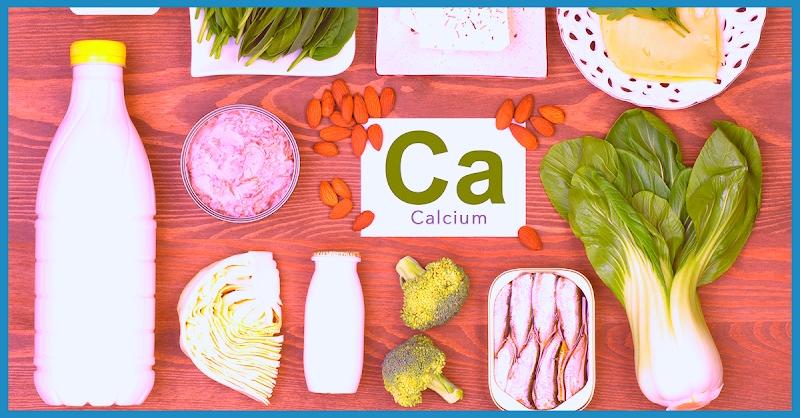Pregnancy is a very delicate and important period in a mother’s life. Maintaining great health and a balanced diet is very crucial for women as well as their children.
Eating well provides your baby with all essential nutrients and ensures you stay healthy through your pregnancy as well.
Keeping yourselves enriched with vitamins and minerals is important especially in pregnant women as it helps the growth and development of the baby.
In this blog, we shall talk about some delicious and nutritious foods that will give your baby the gift of good health, and reduce the risk of any pregnancy related complications.
Table of Content
- Pregnancy Diet: Keeping Your Energy Levels High
- Balanced Diet = Healthy Pregnancy!
- Foods to Boost Your Health
- Whole Grains
- Salmon
- Eggs
- Dairy Products
- Green, Leafy vegetables
- Berries
- Conclusion
Pregnancy Diet: Keeping Your Energy Levels High
Taking good care of yourselves during pregnancy and ensuring proper health is extremely important. While some experts may suggest intake of folic acid and Vitamin D, taking supplements and medicines might cause side effects in some women and is not advised.
Click here – Health Benefits of Eating Whole Grains
Myth – You need to eat food for “two people” when you are pregnant.
Fact – A non pregnant woman needs about 2,000 kcal in her daily food intake. During pregnancy, this number increases by:
- +70 kcal/day in the first semester – equivalent to adding a slice of whole grain bread in your breakfast.
- +260 kcal/day in the second semester – equivalent to one added fruit bowl with yogurt.
- +500 kcal/day in the third semester – equivalent to an additional medium-sized meal.
Always make sure to keep your energy levels maintained to ensure you and the baby stay healthy.
Balanced Diet = Healthy Pregnancy!
Despite many common misconceptions, it’s smart to follow a balanced diet that provides nutrients to you and your baby’s developing needs.
Different medical councils have a range of Food Based Dietary Guidelines, also known as FBDGs. These food pyramids help ensure that you get the right amount of nutrition in your pregnancy diet.
All guidelines follow a general idea to suggest a variety of foods from each food group, that comprises grains, proteins, fruits and vegetables, dairy products, fats, and other plant based alternatives.
What’s important is giving your body the all round nutrition it needs to sustain a healthy lifestyle.
Foods to Boost Your Health
There are a bunch of different food that various doctors and nutritionists suggest women several healthy eating plans, but the only higher amounts of foods you need as compared to when you aren’t pregnant are:
- Proteins
- Vitamins and Minerals
- Healthy Fats
- Complex Carbohydrates
- Fluids And Fiber
Here’s some foods that will ensure that you get a dose of all these essential nutrients in your pregnancy diet.
- Whole Grains:
Packed to the brim with fibers, vitamins, and minerals, whole grains are great to have during pregnancy. Whole grain foods like oats, quinoa, wheat berries, barley, pasta and brown rice are excellent choices for your daily dose of nutrition.
Whole grains like quinoa are rich sources of proteins as well as magnesium and Vitamin B. A great way to make quinoa is to prepare and serve it with some roasted sweet potatoes.
Wheat is packed with fiber and magnesium to ensure you and your growing baby get your dose of hydration. Wheat is also rich in Vitamin B that plays a vital role in maintaining good health and well being. Vitamin B also prevents risk of any infections. India Gate Whole Wheat flour will be the right choice for you.
- Salmon:
Rich in omega-3 fatty acids, Salmon is an excellent starter to this list. These healthy fats help in brain and eye development of your child and even help increase gestational length.
Seafood is not suggested for pregnant women as many fish contain mercury which is poisonous for the baby. But salmon contains no mercury and is hence, on this list.
You can even consume various river fish because of their high oil content.
- Eggs:
Eggs are considered to be the ultimate health food, and are rich with almost every nutrient mentioned in the list above. An average egg contains about 80 calories, healthy fats and proteins, and a multitude of vitamins and minerals.
Eggs are also rich in Choline, a nutrient that is vital during pregnancy for brain and spinal development of the baby.
A single egg contains about 150 mg choline, which certainly helps for the daily requirement of 450 mg.
- Dairy Products:
Extra protein and calcium intake definitely helps to fulfill the needs of your little one, so all dairy products such as milk, cheese and yogurt are a must have during pregnancy.
Dairy products generally contain two main types of proteins; Casein and Whey, and are also rich in magnesium, zinc, phosphorus and Vitamin B.
Even if you are lactose intolerant, greek yogurt is the ultimate dairy product for you as it contains more calcium than any other dairy product and has very low tolerance requirements
- Green, Leafy Vegetables:
Green vegetables such as spinach, kale and broccoli are filled to the brim with almost all essential nutrients you would need for your and the growing baby’s needs.
Spinach is rich in fiber, vitamin C, vitamin K, vitamin A, calcium, iron, folic acid, and potassium. The great part about spinach is that it can be fit into almost any recipe.
Green vegetables are also an excellent source of fiber that reduces the risk of constipation.
- Berries:
Berries are an excellent source of hydrating fluids, antioxidants, healthy carbohydrates and many other vitamins. Low glycemic levels make berries an excellent choice for women with high blood sugar level problems.
Rich in fiber, berries provide hydration to your body while being low calorie.
Some of the best berries to eat while pregnant are goji berries, cranberries, acai berries and blueberries.
Conclusion
The needs of your growing baby are ever increasing and nutrient focused. There’s a plethora of delicious food you can nourish your baby with and keep yourselves healthy at the same time without consuming any supplements at all!
A good rule of thumb is to get a balanced diet that contains good sources of proteins, vitamins, carbohydrates, essential oils and fibers.
You can find these nutrients in a bunch of foods other than the ones mentioned in the list and even stay healthy by staying on your everyday diet.
Click here – Understanding persona, tone and voice



